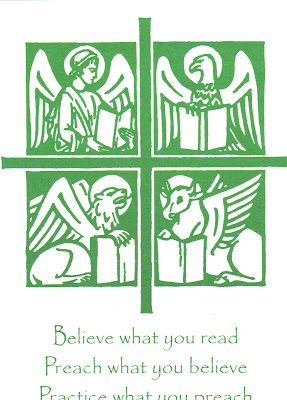Much of my silence this summer was due to the fact that I was engaged in CPE, an intensive summer practicum in hospital chaplaincy. The 400+ hours of work, plus about 100 hours spent commuting, over eleven weeks left time for little else. But it was a rich and valuable, if exhausting, experience. You can expect that I’ll probably be offering some reflections on that experience in the weeks to come. Here’s one.
with thanks for A
On Monday morning the group of us twelve summer interns would gather for some role play exercises. On one Monday morning, not quite halfway into the program, we were interrupted by a knock at the door. They needed a chaplain in the emergency room. I’ll admit that I wasn’t quick to volunteer and A, who had been doing much of her work in that department anyway, said she would go. I turned my attention back to the role play of the day.
Not five minutes later, A returned. “They want a Catholic,” she said. All eyes turned to me. You see, I was the only Catholic among the summer interns, so that meant me. I somewhat embarrassedly—because I consider A a much better hospital chaplain than myself—stood up to go. A came with me.
I arrived at Emergency, the Catholic, to find an unconscious man surrounded by his wife, daughter, son and son-in-law. The man had suffered a sudden stroke that morning, and they weren’t sure about what was going to happen next. A watched as I greeted the unconscious man, introduced myself, told him why I was there, and offered to pray. I joined hands with the grieving family around the bed. I prayed Catholic prayers. They were grateful and thanked me, and seemed to be indicating they were done with me. I’d given them what they wanted.
Surely that couldn’t be it?! I was there to talk with them, to help them through this difficult time. Surely my job wasn’t just to pray, and go? Was it? So, I stubbornly stayed, and waited, feeling more and more like a fifth wheel. A managed to talk a bit to the son (which seemed to affirm that they’d have been better of with her than this Catholic), but I felt like the rest of them were wondering why’s he still here? Eventually, I found an opportunity to make an awkward exit.
Later, I found myself angry at this family. Why all the fuss about wanting a Catholic, if that was it?! A could have done a much better job praying with them. She’d even learned the Hail Mary for just such an instance! How dare they not grieve in a rational way! How dare they not grieve the way that I expected them too!
And I realized that was it, wasn’t it? I was making this about me, not them. I resented the fact that they hadn’t made use of me, except as a dispenser of Catholic prayers.
But shouldn’t I have been thankful that I had been able to be there for them in their grief, to say the words that would bring some comfort? If it’s not about me, then that’s what it’s about—bringing Christ into the room—and then, yeah, maybe, they don’t need me to hang around.
It took me a little while to get to this realization, but a few weeks ago I had the opportunity to see it from another perspective. I was reading Joan Didion’s The Year of Magical Thinking where she recounts how she dealt—or didn’t—with her husband’s death. I recommend the book highly. Early in the book, she describes being in the hospital on the night of her husband’s death. Almost as an aside, she mentions, “They asked if I wanted a priest. I said yes. A priest appeared and said the words. I thanked him.” Then she moves on. At first I again felt that question, “That’s it?!” welling up inside of me. And then not a question, but a conviction: Yeah, that’s it. The grieving widow expressed a desire for something holy, something of God. The priest appeared; he was there. He said the words. She was grateful. Communion. What more was necessary at that moment?
Maybe later the offending family would ask again for more. But, for the moment, the words were what they needed. And I had the duty and the privilege of being there to speak them. Maybe it is the case that anybody could be there, anybody could say the words, and many better. But for some reason the responsibility has been given to me. And for that I, too, should be grateful.



















